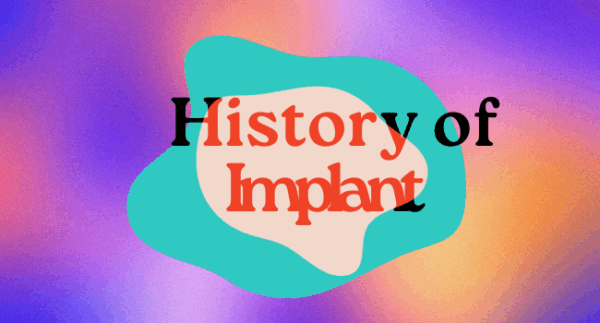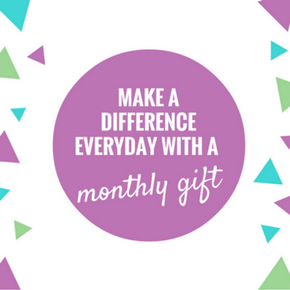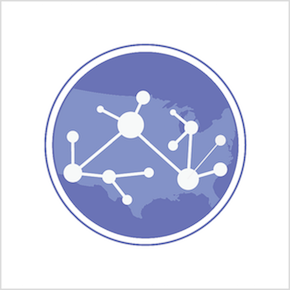Aug 14

Help Us Protect Access to Sexual and Reproductive Health Care Today!
Newsletter/February 2017

Photo credit: Nicole Craine for The New York Times
“…if you look at our country’s history, change doesn’t come from presidents. Change comes from large groups of angry people. And if Day 1 is any indication, you are part of the largest group of angry people I have ever seen.” Aziz Ansari, Saturday Night Live Monologue, January 22, 2017
Ever since the election, the Reproductive Health Access Project has seen a marked increase in activism and support for our work. Clinicians who were quiet, under the radar members of our Reproductive Health Access Network are stepping up to find out how they can be more involved, and others who were unknown to us have reached out to join our Network. Since the election, we have launched on the ground organizing efforts in 10 (!!!) new states. Health centers are reaching out for help integrating abortion into their scope of services. In the last week alone, we began working with health centers in California, Idaho, and Massachusetts to help them wade through the red tape to add abortion and miscarriage care into their practices. The number of folks interested in volunteering with us skyrocketed–so much so that we are launching a new volunteer program (click here for more info on how to get involved.) We raised a record amount of money in our year-end appeal. The number of new donors increased by 80% and we tripled the number of recurring/sustaining donors. This is all, we believe, a result of a new wave of civic activism triggered by the election. It is amazing. Thank you!
On Saturday, January 22, people all around the world gathered peacefully in huge numbers in support of the Women’s March—a further testament to this newfound activism. Our team made posters, tabled, and marched with families and friends in marches all around the country: Los Angeles, San Francisco, Oakland, Boston, Rhode Island, Chicago, New York, and Washington, DC.
We are committed to keeping this momentum going. We are creating a new section on our website called: Mobilize! There we’ll share opportunities for activism that will expand access to reproductive health care. But one thing that we believe made the Women’s March so successful is that it wasn’t about just one issue. It was intersectional. People were marching for reproductive justice, environmental justice, racial justice, economic justice, and more. We will, in honor of that spirit, also be sharing opportunities to engage in intersectional activism. Working together, we can all move forward.
 February is a month that recognizes and celebrates different aspects of sexual and reproductive health. Along with Valentine’s Day, Sexual and Reproductive Health Day (February 12th), International Day of Women’s Health (February 12th), and National Condom Day (February 14th) were established to promote healthier sex lives, decrease unwanted pregnancies, and create awareness of different sexual transmitted diseases and infections including HIV/AIDS.
February is a month that recognizes and celebrates different aspects of sexual and reproductive health. Along with Valentine’s Day, Sexual and Reproductive Health Day (February 12th), International Day of Women’s Health (February 12th), and National Condom Day (February 14th) were established to promote healthier sex lives, decrease unwanted pregnancies, and create awareness of different sexual transmitted diseases and infections including HIV/AIDS.
The Reproductive Health Access Project regularly updates our patient education materials to reflect the most current and accurate information in regards to birth control options and other reproductive health topics.
In honor of Valentine’s Day and Condom Day, our materials, including “Your Birth Control Options” and “Birth Control for Men” will be on sale, 20% off month long. Our sheets cover the basics to help everyone choose the contraception that is best for them. And, they are available in English, Spanish, Traditional and Simplified Chinese!
Use RHAP code VALENTINE17 after entering your payment information to take full advantage of this month-long sale!
 Become a recurring donor. Make a gift that can help generations!
Become a recurring donor. Make a gift that can help generations!
The Reproductive Health Access Project (RHAP) trains and supports clinicians to make abortion, contraception, and miscarriage care accessible to everyone. By joining this group of supporters, you will provide RHAP with reliable resources needed to tackle the challenges we face every month, all year long.
The monthly donors are the Reproductive Health Access Project’s most passionate and forward-thinking supporters – just like you!
YOU have the power to make a lasting impact. Want to join this awesome group of supporters? Click here and it will lead you to RHAP’s donation page. Once there, choose your donation frequency – Monthly or Quarterly, and BOOM! You’re in!
Thank you for your everlasting gift!
 The past few months have been an exciting time for the Reproductive Health Access Network, RHAP’s community of pro-choice primary care clinicians from across the country who work locally and nationally to expand access to comprehensive reproductive health care in their clinics and teaching practices. Since the election, at least 200 more pro-choice clinicians have joined, bringing our total membership to over 1,200 people across 44 states and Washington, D.C.. Even more exciting has been the explosive growth of our Network chapters, or Clusters. In addition to our longstanding Clusters in Boston, New York City, Philadelphia, New Jersey, Rhode Island, Baltimore, and Vermont, we now have ten new Clusters who have met or are meeting in the coming months!
The past few months have been an exciting time for the Reproductive Health Access Network, RHAP’s community of pro-choice primary care clinicians from across the country who work locally and nationally to expand access to comprehensive reproductive health care in their clinics and teaching practices. Since the election, at least 200 more pro-choice clinicians have joined, bringing our total membership to over 1,200 people across 44 states and Washington, D.C.. Even more exciting has been the explosive growth of our Network chapters, or Clusters. In addition to our longstanding Clusters in Boston, New York City, Philadelphia, New Jersey, Rhode Island, Baltimore, and Vermont, we now have ten new Clusters who have met or are meeting in the coming months!
In December, clinicians in the Bay Area came together for the first meeting of the Northern California Cluster. Over 20 community providers attended the gathering, which consisted of an Advocacy 101 training given by our partners at Physicians for Reproductive Health. There was a lot of support for engaging in more legislative advocacy, and lending their voices as providers. In Colorado, another group of clinicians met in Denver, where they discussed their priorities moving forward. Next steps include running through some advocacy 101 trainings, becoming connected to the local NARAL, and building a pro-choice presence at the Colorado Academy of Family Physicians. Brand new Clusters are also meeting in the next few months in Illinois, Maine, Michigan, Minnesota, North Carolina, Ohio, Oregon, and Washington states. While this work is difficult and we have a lot of battles ahead of us, we’ve been taking inspiration and comfort from the incredible momentum that we’ve seen since the election. As the Network grows, so does our collective power to affect social change.
If you would like to join the Network, please sign up here. If you are a provider living in an area where we have a Cluster and would like to be connected, please email Laura Riker, Program Manager, at laura@reproductiveaccess.org.
Your gift allows us to train and support health care providers across the United States so they can offer patients compassionate and comprehensive care.
Aug 14
